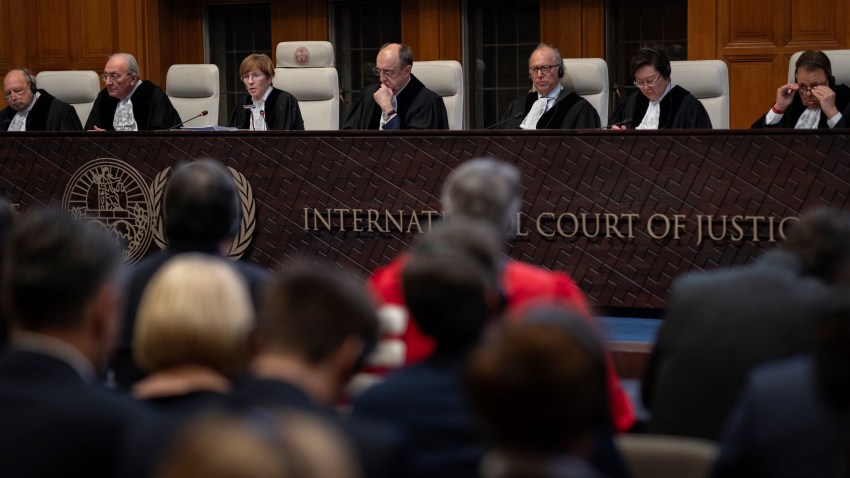Last week, the International Court of Justice issued its second ruling in a case concerning genocide in a matter of weeks, this time on Ukraine and Russia. The ruling—in which the court agreed to take up the question of whether Ukraine, rather than Russia, was committing genocide in the war between them—may have surprised some observers. After all, the preponderance of documented violence against civilians in that war has been committed by Russia since its all-out invasion in February 2022. Coming so closely on the heels of the ICJ’s ruling in South Africa’s case against Israel, the contrast between the two rulings could easily raise eyebrows, with one admonishing the more powerful actor and the other seeming to scrutinize the weaker party.
In reality, however the cases were very different from the start. In the South Africa v. Israel case, a third-party state—South Africa—asked for a ruling on whether a party in a conflict—Israel—might be committing genocide. In Ukraine v. Russia, Russia invaded Ukraine on the pretext that Ukraine was committing genocide against Russian-speakers in the Donbas region. But Russia did not seek a ruling on that by the ICJ. Instead, it was Ukraine itself that put the question to the court about its own conduct in an effort to decisively repudiate Russia’s key legal justification for its invasion. Ukraine also asked the court to rebuke Russia for “abusing” the concept of genocide with its false accusation against Ukraine in order to justify its war.
The court ruled that it doesn’t technically have jurisdiction over the question of Russia’s “abuse” of the genocide concept to justify its invasion, but that it is willing to rule on the question of whether Ukraine is in fact committing genocide. That may appear to be a setback for Ukraine. As Oona Hathaway writes at Just Security, “This is something of a [Pyrrhic] victory for Ukraine, as it means that Ukraine’s conduct, not Russia’s, will be the focus of the arguments on the merits.”

